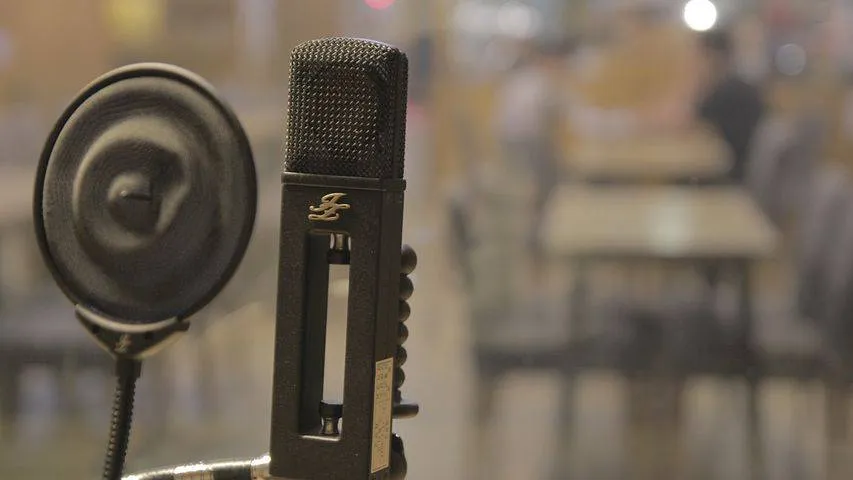
What I Learned from (Co-)Launching a Literary Podcast
There are a lot of excellent literary podcasts growing up all around. Christina Orlando recently recommended four, and before that Kate Scott recommended 15, and 25.
 The Bulaq books podcast, which launched in November of last year, is hardly among the biggest. Ours is something of a niche affair: We talk about books from or with a connection to the Arab-majority region. Or, as our tagline would have it, “The Arab World in Books.”
The Bulaq books podcast, which launched in November of last year, is hardly among the biggest. Ours is something of a niche affair: We talk about books from or with a connection to the Arab-majority region. Or, as our tagline would have it, “The Arab World in Books.”
Our literary podcast runs every two weeks. So, at this point, we’ve got 11 of them under our belt, a few online profiles, and a growing number of listeners. As I mentioned in Episode 11, as the end of each two-week period grows near, I begin to have a small panic about what we’ll discuss: I read manically and widely, and worry that there won’t be enough to talk about. (Spoiler: There’s always enough to talk about.)
But in just 11 episodes of our literary podcast, I’ve learned a few things.
The right partner Is key.
The Bulaq podcast was the brainchild of Ursula Lindsey, a journalist who writes about culture, education and politics for Newsweek, The New York Times, The New Yorker online, Bookforum and the blog of the London Review of Books, as well as other publications. Both of us live in Rabat, Morocco, and she had previously done a podcast in Cairo, Egypt with Issandr Amrani, who now produces Bulaq.
While it’s work to put together a program—even just once every two weeks—it’s a joy to talk books with Ursula. We don’t always agree, but we are interested in similar books and ideas. (In fact, what a shame if we always agreed.)
Also: I’m happy to manage a literary blog on my own (www.arablit.org), but I’d never be able to podcast alone. Some people do, but it seems a lot easier to do with a co-conspirator.
The right schedule is also key.
We record once every two weeks, which seems like a good starting point. If it were any more often, it would feel overwhelming. If it were any less often, I fear we might lose momentum.
Notes are good. Not too many notes.
Often, I like to quote accurately from a book, and I always like to make sure I mention the translator’s name, where there is one. It seems to work well when we make a plan and know what we’re going to discuss, although less well when I’m constantly turning my head to look at my notes.
I have occasionally named the wrong publisher or mis-remembered an author’s name. These things can, fortunately, be edited out or corrected in the show notes.
Sniffling, kicking the table, and Other foibles
I’m a writer and a bibliophile, not a radio personality. It’s been difficult for me to remember certain things: speak over the top of the microphone, don’t “pop” your p’s, and for the sake of everything holy stop kicking the table! But, with podcasts, fortunately no one expects you to be a great radio personality. And even more fortunately, my co-host does have significant radio experience and equipment.
So: Should You Start a Literary Podcast?
Absolutely! Sometimes, the podcast has fed my writing. Sometimes, it’s given me a chance to talk about books I didn’t have time to write about. And all the time, it’s been excellent fun.









